Ford Sport Trac Review (by Owner)
Article and Pictures by Mark Trotta
With production starting in 2000, the Ford Explorer Sport Trac was offered from 2001 through 2010 (no 2006 model was produced).
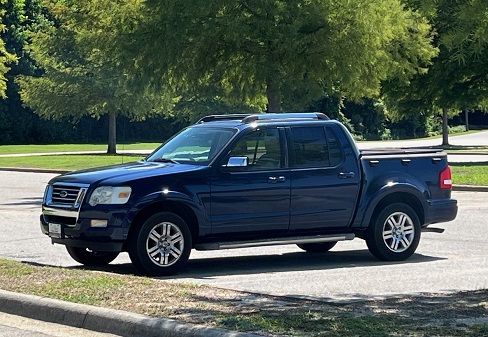
The truck in the above picture is my second Ford Sport Trac. The first was a 2001 model (also blue) and driven daily until 2014, when I sold it and bought this second-hand 2008 model.
First-Generation (2001-2005)
First-gen models were based on the Ford Ranger chassis. The front part of the body was shared with the two-door Explorer Sport, and had it's own pickup bed with durable plastic liner.
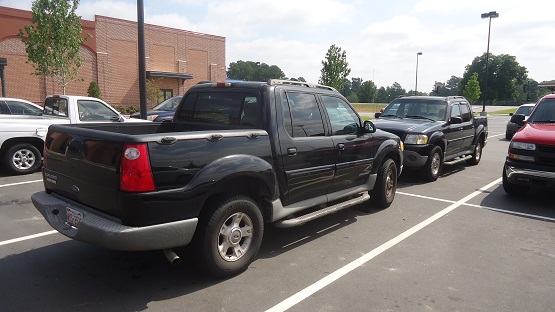
One-half pickup and one-half SUV.
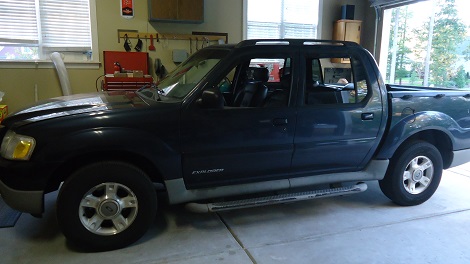
Two sub-models were offered, XLT or Limited. Many were equipped with a lockable tonneau cover.
Second Generation (2007-2010)
The second-gen models were based on the Ford Explorer.
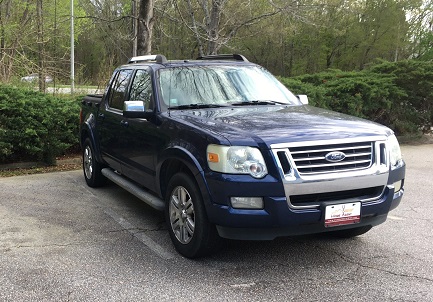
Total bumper to bumper length is 210.2 inches, making it longer than the Explorer by 16.8 inches. A V8 engine was available for 2nd Gen models.
Safety features included side-curtain driver/passenger airbags. Four-wheel disc brakes with ABS were also standard. By using the F-150's tube-through-tube frame design, there is a substantial increase in stiffness.
For 2008, three sub-models were offered; XLS, XLT, and XLT Premium. Standard features included side step bars, power rear window, and fog lamps.
Increased Storage
Second-gen models boast more storage capacity. This is partially due to the three storage bins on the left side, right side, and front of bed behind cab.
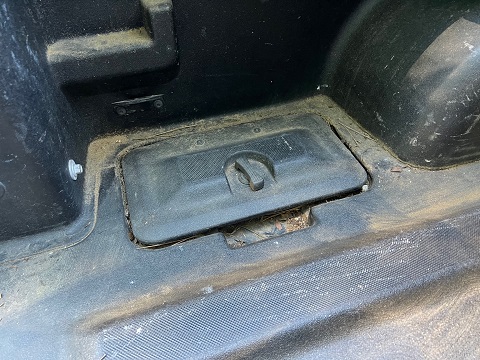
The bed mat in my '08 is an aftermarket cut-to-fit.
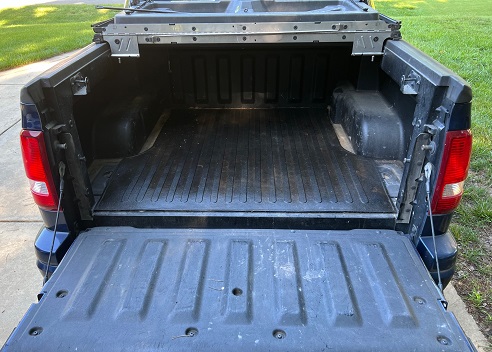
All Sport Tracs are mid-size, four-door pickups, and have a four-foot bed.
First-Generation vs Second Generation
The 2nd Generation Sport Trac is more than five inches longer and almost two inches wider than the First-Gen models, plus has more storage capacity. Second-Gen models were also available with V8 power.
2WD vs 4WD
Two-wheel drive (RWD) is standard, while a four-wheel-drive (4WD) system is optional. Unless you spend a lot of time going off-road or have to deal with snow or unplowed roads, two wheel drive is all you need for a daily driver.
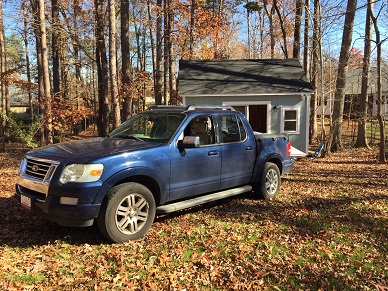
Although 4WD has it's advantages, consider the harsher ride, lower gas mileage, and worse handling. There are also more parts to fail and higher maintenance.
I live near Raleigh, NC, where it's fairly flat, 99% paved, and we seldom see snow. Both my 2001 and 2008 Sport Tracs were two wheel drive models.
V6 vs V8 Engine
Although V8 power was available for 2nd Gen models, mine has the base 4.0L V6 motor. Occasionally it pulls a small utility trailer. If I did any serious towing, I would have opted for V8 power, but I'm happy with the V6 mileage (20 mpg average).
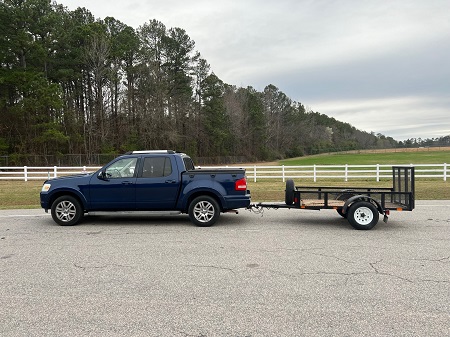
Suspension
All 2nd Generation Sport Trac's feature four-wheel independent suspension. The long 130.5" wheelbase gives a very stable ride at extended highway speeds.
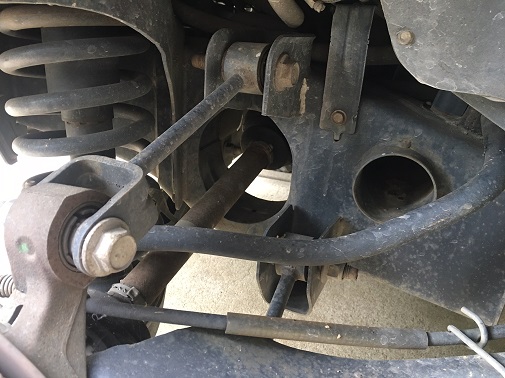
GVWR and GCWR
The Explorer Sport Trac is a Class 2 vehicle and has a GVWR (gross vehicle weight rating) of 6250 lbs. The maximum GCWR (gross combined vehicle weight) is 12,000 lbs. These figures are better than Dodge Dakota, Toyota Tacoma, and GMC Canyon/Chevy Colorado pickups.
Interior Room and Comfort
I've taken both of my Sport-Tracs on several long trips, the longest one from here in central North Carolina to Kenner, Louisiana. The driver's seat is supportive and adjustable, and outward visibility is very good.
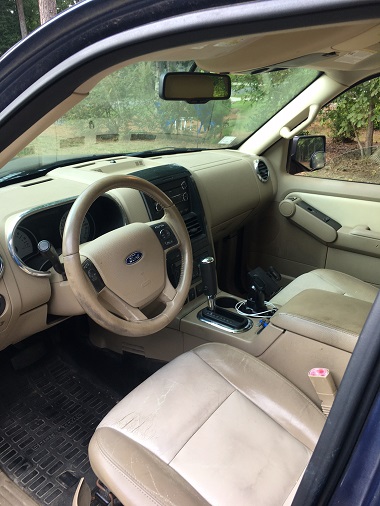
Plenty of room inside, plus lockable bed storage with optional hard cover.

Neither generation has interior carpeting, instead there is a durable vinyl flooring.
***************
Sport Trac Adrenalin (2008-2010)
First seen in 2005 as a concept truck, the original Adrenalin featured a custom body kit, 21" wheels, supercharged V8 power, and the Lincoln Navigator's six-speed transmission.
However, by the time the Adrenalin actually saw production, it was essentially an appearance package, which included 20" wheels, blacked-out headlights and grille, and model-specific bumpers and front fenders.
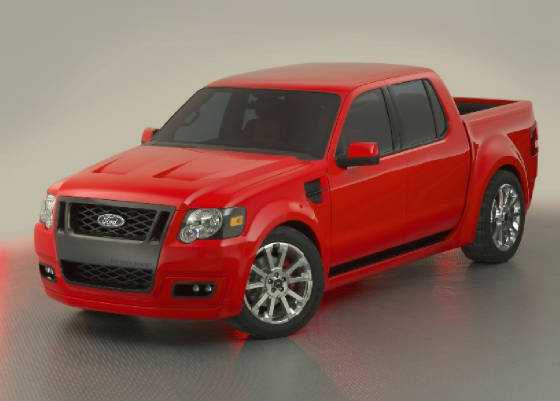
Reports show about 6,000 Adrenalin's were sold in the three years produced, with about 600 of those being V8 powered.
Conclusion
Both of my 2001 and 2008 Sport-Trac's have proved to be reliable and handy vehicles. Aside from getting me back and forth to work faithfully and comfortably for 20+ years, they've carried bicycles, motorcycles, go karts, kayaks, kids, lumber, mulch, furniture, kitchen appliances, engines, transmissions, tires, wheels, and more!
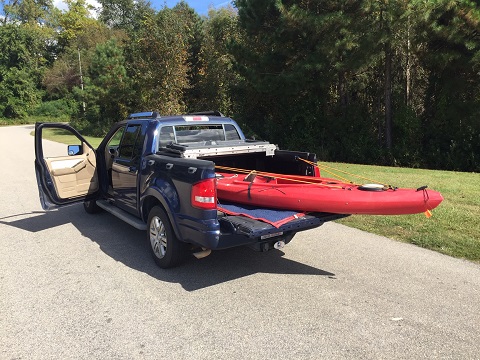
Every so often, the tailgate becomes a portable workbench. It helped me build this work table out on the driveway one summer day.
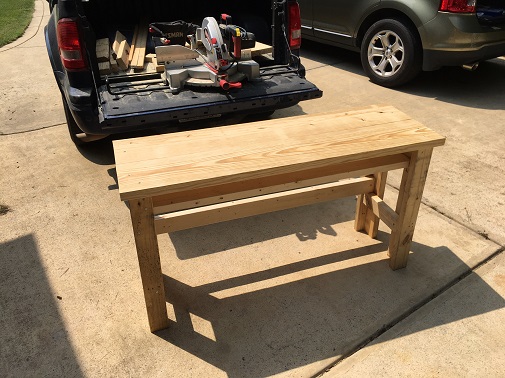
***************
Related Articles:
Replace Shift Interlock Module Ford Explorer and Sport Trac
Replace Side Mirror
Difference Between 4.0 OHV and SOHC
High-Mileage vs Full-Synthetic Oil
Replace Sway Bar Links
Replace Battery Terminal Ford F150
